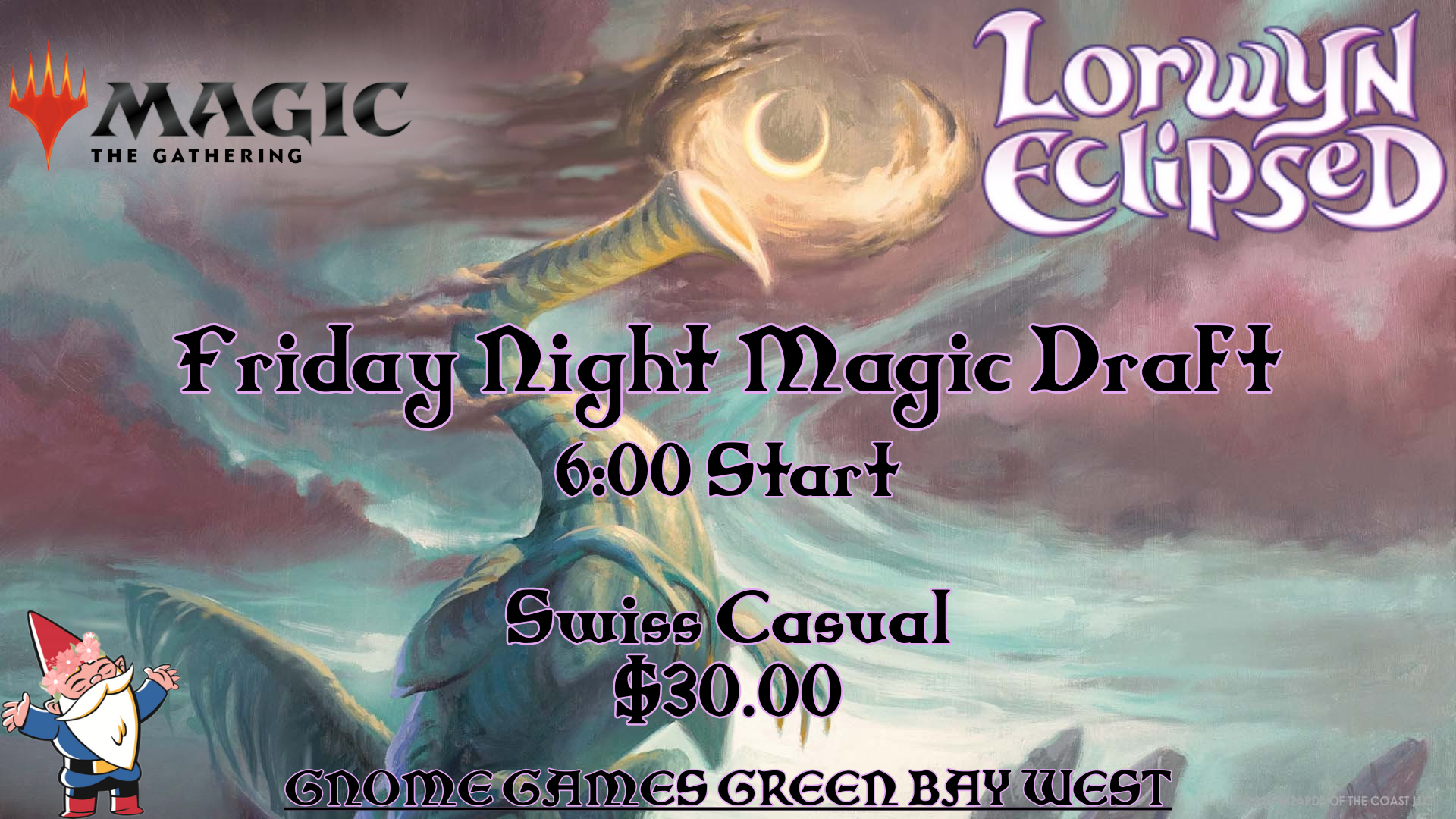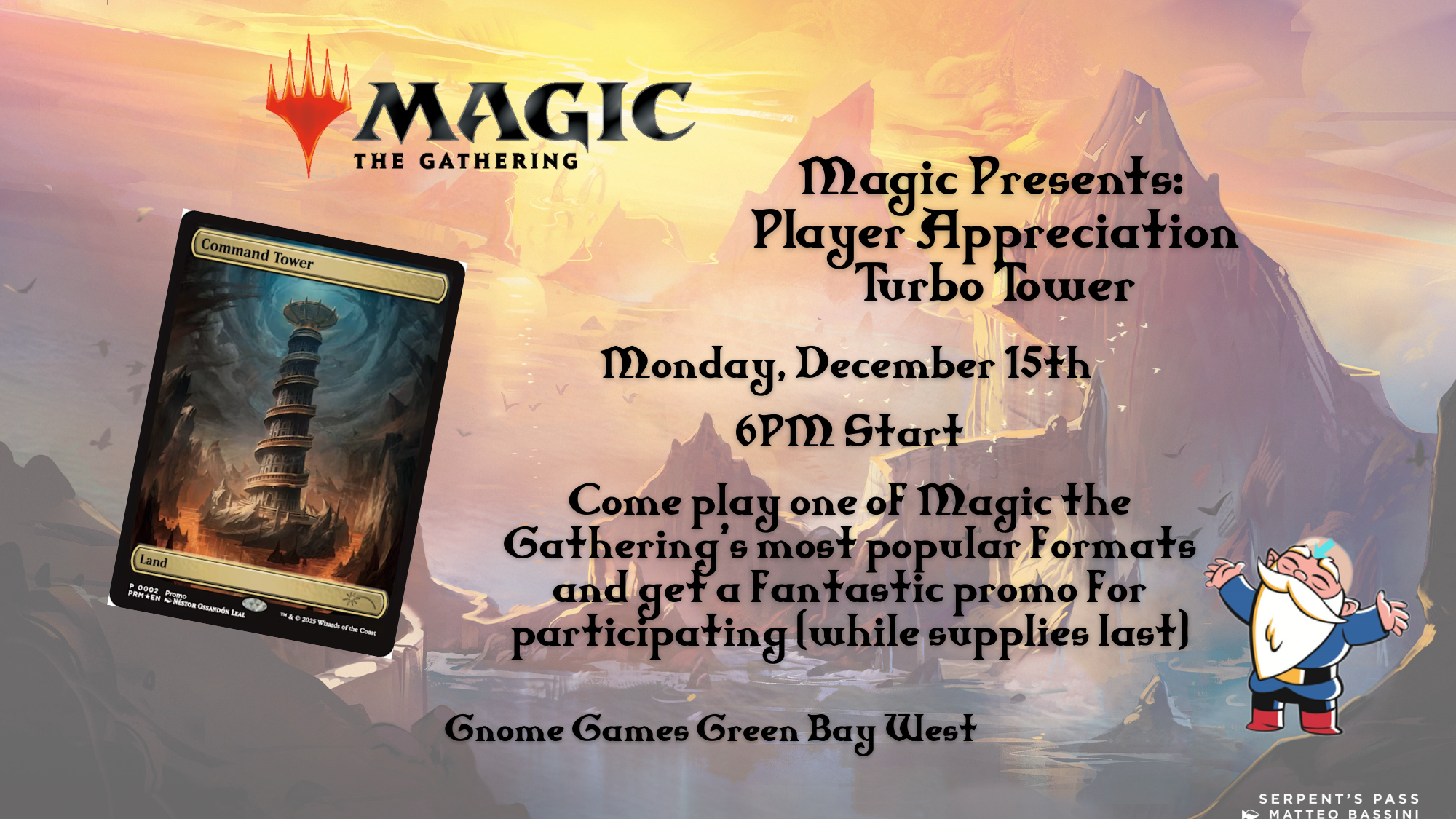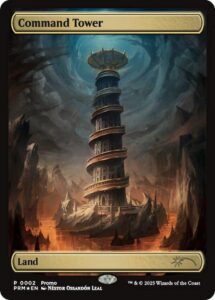Draft with the Gnomes with the newest set of Magic the Gathering: Avatar: The Last Airbender!
Each Friday at 6pm is our draft time! $40 entry gets each player 3 Play Booster packs to draft with. We’ll play 3 rounds after decks are constructed from cards drafted and the basic lands Gnome provides! Each round won, wins the match winner a play booster!
~ Join our event on the MTG Companion App with this code : M75ZMEX
For more info on Avatar, click here! On Drafting, click here!
For our other Magic events, keep an eye on our calendar!
Study up on some upcoming mechanics!
Firebending is a keyword that always includes a number. Whenever a creature you control with firebending attacks, you add that much red mana. You don’t lose this mana during that combat. Any of this mana you still have as combat ends will be lost. You won’t have it during your second main phase.
Airbend is a keyword action. To airbend a permanent or a spell, you exile it. As long as that card remains exiled, its owner may cast it by paying rather than paying its mana cost. This doesn’t change when that card can be cast. If you airbend a creature that an opponent owns during your turn (notably something Appa can’t do unless you control that creature, but other cards can), they’ll usually have to wait until their next turn to cast it again.
Waterbend is a cost and always includes an amount of mana that must be paid … somehow. More on that in a moment. Waterbend costs can appear as an additional cost to cast a spell, as part of an ability’s activation cost, or anywhere else you might be asked to pay mana.
To pay a waterbend cost, you can always just pay the requested mana. However, for each 1 mana in that cost, you can tap an untapped artifact or creature you control rather than pay that mana. If you choose to tap a creature to help pay a waterbend cost, it can be one that just came under your control that turn.
Earthbend is another keyword action that includes a number. When you earthbend, choose target land you control. As the earthbend ability resolves, that land becomes a 0/0 creature with haste that’s still a land. Then put +1/+1 counters on it equal to the earthbend number. Because the new creature land will have haste, you can feel free to earthbend lands that you just played. There is no summoning sickness in Ba Sing Se.
*pricing is subject to change up to 72 hours before the event


 Welcome Magic Players! Gnome Games and Wizards of the Coast invite you to play in a special Turbo Tower event!
Welcome Magic Players! Gnome Games and Wizards of the Coast invite you to play in a special Turbo Tower event! ~Join the Gnomes at Gnome Games Green Bay West for some Avtar fun with a Two-Headed Giant Commander Event celebrating the Avatar set January 5th at 6pm!
~Join the Gnomes at Gnome Games Green Bay West for some Avtar fun with a Two-Headed Giant Commander Event celebrating the Avatar set January 5th at 6pm!